#allergicasthma
Explore tagged Tumblr posts
Text
बेनरालिजुमैब (Benralizumab) और अस्थमा पर शोध: एक विस्तृत अवलोकन
अस्थमा: एक वैश्विक और भारतीय चुनौती अस्थमा एक पुरानी श्वसन संबंधी बीमारी है जो वायुमार्ग में सूजन के कारण होती है। यह सांस लेने में कठिनाई, खांसी और सीने में जकड़न जैसे लक्षण उत्पन्न करती है। भारत में, अस्थमा का औसत प्रसार दर लगभग 2.05% है, जो 18 मिलियन से अधिक लोगों को प्रभावित करता है। भारतीय अध्ययन (INSEARCH) के अनुसार, ग्रामीण और शहरी दोनों क्षेत्रों में अस्थमा के मामले तेजी से बढ़ रहे हैं।…
#allergicasthma#asthma#atopicdermatitis#atopischedermatitis#atopischesekzem#benralizumab#biologica#biologicas#chronicidiopathicurticaria#ciu#derma#dermatology#dupilumab#ent#geidac#hno#immunoglobuline#injection#nasenpolypen#omalizumab#outpatient#picsnosus#polyp#polyps#pulmology#reglasmnemot#subcutaneousinjection#urticaria#urticariacronicaespontanea#xolair
0 notes
Text
Allergic Asthma Treatment in Homeopathy | Homeopathy Treatment for Allergic Asthma - Homeocare International
Homeocare International provides Constitutional Homeopathy Treatment for Allergic Asthma which not only aims to provide symptomatic relief but also to improve the immunity power to the fight against infections and allergies. Homeopathic treatment will help you to control Allergic Asthma without any side effects.
Call 9550003388 to book your appointment.
www.homeocare.in/homeopathy-treatment-for-allergic-asthma.html



#homeopathytreatment#constitutionalhomeopathy#homeopathymedicine#homeopathyremedies#allergicasthma#asthmatreatment
0 notes
Text
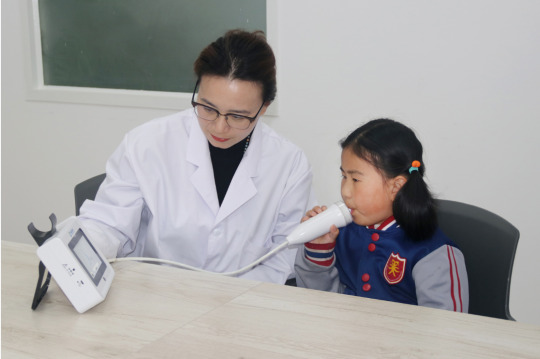

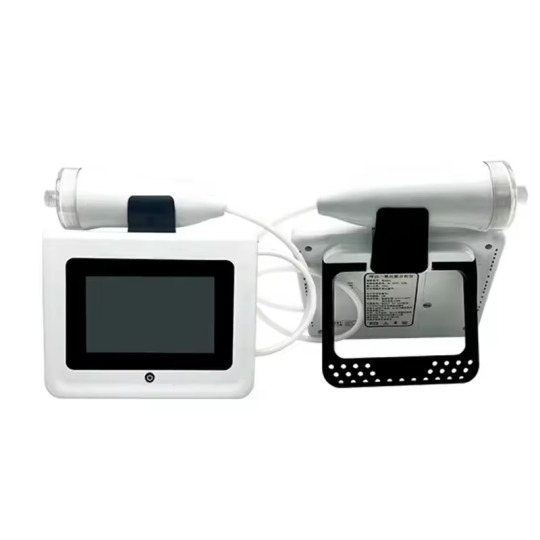



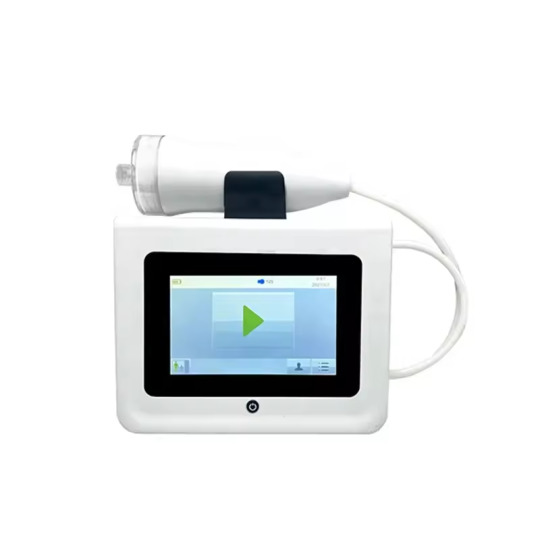
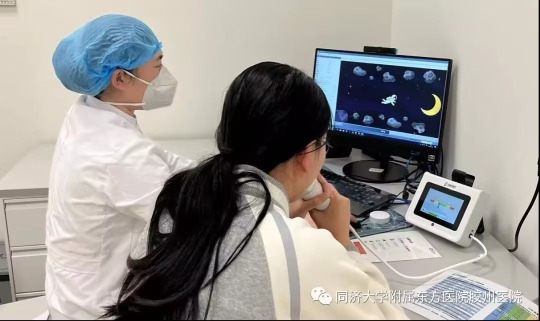

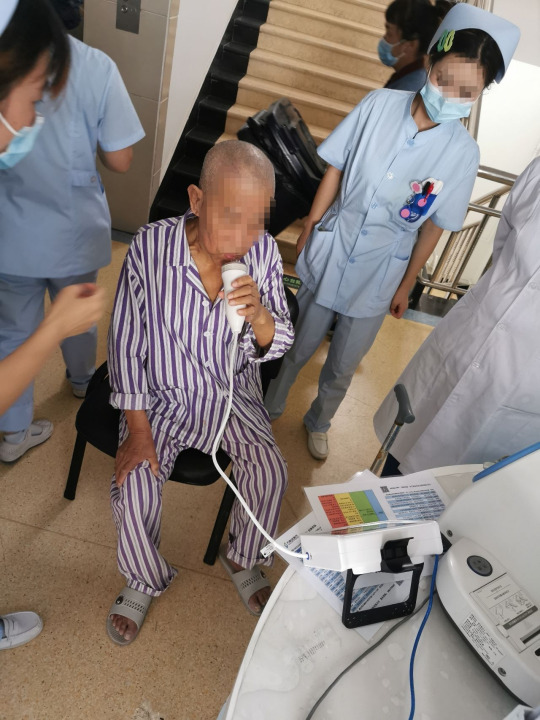

#FENO #Asthma #NitricOxideAnalyzer #FeNOTest #LungFunctionTests #ExhaledNitricOxide #AllergicAsthma #EosinophilicAsthma
0 notes
Text
The Top Symptoms and Signs of Allergic Asthma
The blog throws light on the mild and severe signs and symptoms, that a person feels suffering from chronic allergic asthma.

1 note
·
View note
Text
Allergic Reaction
#allergicreaction#hivesonskin#allergic#rhinitis#allergicreactionrash#foodallergy#shotforallergies#anaphylactic#allergicasthma#hayfever#allergicrhinitis#seasonalallergies#allergictogluten
0 notes
Text
Allergic Asthma: Symptoms, Causes, and Risks

Bronchial asthma is a common disease. About 10 to 15 percent of children and about seven percent of adults are affected. The most common asthma triggers are allergies. Doctors then speak of allergic asthma. The most important facts in brief: - Asthma leads to a chronic inflammation of the airways. This causes hypersensitivity of the bronchial tubes. Experts refer to this as a hyper responsive bronchial system. - If the hypersensitive bronchial tubes are irritated, for example by contact with certain allergens; the mucous membrane in the bronchial system swells. Increased mucus production sets in and the bronchial tubes become tense. - In allergic asthma, allergens such as pollen, house dust, or animal hair play a particularly frequent triggering role. - The worst case, allergens cause an acute asthma attack. In this case, the bronchial musculature cramps strongly and exhalation becomes difficult. Typical characteristics are whistling breathing noises, coughing and severe shortness of breath.
What is allergic asthma?
Physicians differentiate between allergic asthma (extrinsic) and non-allergic (intrinsic) bronchial asthma. This differentiation is important for the treatment of the disease. In the non-allergic form, factors such as respiratory infections or physical exertion trigger the chronic inflammation of the airways. Allergic asthma, together with allergic rhinitis (hay fever) and neurodermatitis, is one of the diseases of the atopic group. The term atopy refers to a hereditary predisposition to exaggerated defensive reactions on contact with allergens. The atopic diseases can occur simultaneously, alone or in succession. In addition; there are also mixed forms of asthma in which a very clear assignment to one of the asthma classifications is not possible with certainty.
Triggers and Symptoms of Allergic Asthma
The body's immune system fights off harmful foreign substances. In allergies, however, there is a defective and exaggerated immune response to substances that are actually harmless. The triggering substances are also known as allergens. What are the causes of allergic asthma The cause of asthma is always a hereditary predisposition. When the body comes into contact with a certain allergen, the immune system overreacts: It is in an imbalance and triggers an allergic reaction, although the allergen is actually not harmful to the organism. In principle, the body can have an allergic reaction to many substances. The following triggers are typical for allergic asthma:

Insecticides one of allergic asthma triggers - Plant pollen - House dust mite droppings - Animal hair and bird feathers - Insecticide - Mold spores - Flour or wood dust - Certain foods - Medication If a pollen allergy (such as a birch allergy in the case of hay fever) is the cause of allergic asthma, doctors also speak of seasonal asthma because it only occurs during the pollen season. Allergic asthma due to house dust or animal hair allergies, on the other hand, can lead to symptoms all year round. Symptoms: How does allergic asthma feel? Swollen mucous membranes, allergic rhinitis, itching of the skin or conjunctiva, asthma or asthmatic cough, or even a circulatory collapse are possible symptoms of the faulty immune response. In allergic bronchial asthma, chronic inflammation of the lower airways occurs, causing the mucous membranes to swell. In addition, the inflamed mucosa produces more mucus, which sufferers cannot cough up properly due to the swelling. It is also possible that the bronchial tubes cramp and the flow of air is obstructed. This becomes noticeable with whistling breathing (wheezing). Breathing air hardly escapes from the cramped bronchial tubes, which in turn impedes inhalation. Patients feel this through shortness of breath as well as an unpleasant pressure when breathing. Warning signal is a stridor: A stridor is an audible, pulling or whistling breathing sound caused by a narrowing of the airways. If an asthma attack cannot be quickly broken by the patient's emergency medications, you should call an emergency physician.
Risks in pregnancy and in children
Pregnant women, infants and children are special risk groups for allergic bronchial asthma. Affected parents and pregnant women should therefore take special care and consult a doctor not only early but also regularly. Allergic asthma in pregnancy

If you have asthma during pregnancy, seek advice from your doctor. If you are pregnant and suffer from allergic asthma, you should inform your caring doctors about the asthma condition. During pregnancy; additional examinations by a lung doctor are necessary. Because untreated asthma is then associated with special risks - both for the growing child and for the expectant mother. As a rule, pregnant women should attend check-ups every four to six weeks. Your doctor will know whether you can continue to use your asthma medication during pregnancy or whether a change in therapy is necessary. However, do not discontinue the medication on your own. Inhaled medications enter the blood only in small amounts. The risk of harm to the baby from poorly controlled severe asthma outweighs the risk of asthma medication. Instead, always consult a medical professional. If an asthma attack occurs, pregnant women need care in the hospital to avoid hypoxia to the baby. What are the effects of asthma on breastfeeding? Asthma and allergies are diseases with a hereditary component. Therefore, children of asthmatics have about a threefold increased risk of developing asthma themselves later on. Breastfeeding does not protect against asthma, but it can reduce the risk and at the same time also lowers the likelihood that the child will develop allergies later on. It is assumed that the antibodies (IgA); specific messenger substances (cytokines) and long-chain fatty acids contained in breast milk stimulate the infant's gut-associated immune system, which is also associated with the development of the gut microbiome. Even when breastfeeding, talk to your doctor about your asthma therapy and ask if you can continue your medication as usual. Allergic asthma in children

Allergic asthma in children In childhood, allergic bronchial asthma can already become apparent . The problem is that young children are often not yet able to express or describe the symptoms correctly. If the child repeatedly suffers from coughing or difficult, possibly whistling breathing, parents should have the symptoms clarified by a pediatrician. The specialist can check whether asthma is present. In addition; an allergy test will provide information about possible allergic triggers that should be avoided in the future. If your child is already known to have allergic rhinitis, you should treat the allergy consistently. This is because it is possible for the symptoms to move from the upper to the lower respiratory tract due to a so-called floor change. An allergic rhinitis can develop into asthma in this way. In general, allergic asthma in children has a good prognosis and the symptoms disappear in about 50 percent of children during puberty. Nevertheless, the bronchial system remains sensitive even in adulthood, so that about one third of patients later develop asthma symptoms again.
What does the diagnosis of allergic asthma include?
In order to diagnose allergic asthma, the doctor will first ask you detailed questions in an anamnesis interview. Often, triggers and possible allergens are already crystallized here. This is followed by a physical examination: - Listening to the lungs: Here, the physician pays particular attention to conspicuous breathing noises. - Spirometry: The test of lung function includes measuring the amount of inhaled air and the exhaled air flow. - Body plethysmography: This supplementary examination allows other lung volumes to be determined. For example, the doctor can determine how much air remains in the airways and how high the airway resistance is. - Reversibility test: This is a test to see if lung function changes after the administration of airway dilation medications. - Provocation test: The lungs are specifically irritated by specific substances to measure how this worsens lung function. Finally, allergy tests are performed. Here, the prick test is helpful: the physician applies an allergen to the skin and observes the reaction. In addition; blood tests can be used to determine specific allergy antibodies.
Is exercise allowed in allergic asthma?
In general, there is nothing to be said against sports in allergic asthma, because physical training makes the patient more resilient and helps to increase the depth of breathing. Endurance sports such as

Exercise is allowed in allergic asthma - To run, - Swim, - To go biking, - Hiking or - To dance. However, asthmatics should also carry their emergency medication with them during sports so that they can take immediate countermeasures if their symptoms worsen. Special caution applies to patients with so-called exertional asthma (also known as exercise-induced asthma): In these patients, symptoms only manifest themselves under strong physical exertion, such as during sports.
Treatment of allergic asthma
After diagnosis, the first question many sufferers probably ask themselves is: Is allergic asthma curable? Although it is a chronic disease, it can be treated well. Patients can contribute significantly to the improvement of symptoms by consistently avoiding the triggering allergen and by taking adequate allergy treatment. In addition; asthma treatment should be given to maintain normal lung function and avoid exacerbations. What helps against allergic asthma? To effectively treat allergic asthma, the following therapy components are essential: - Avoid triggering allergens - Treat allergy - Drug treatment of asthma In addition; supportive measures such as patient education and breathing training may be considered. Some patients have also had good experiences with homeopathy for allergic asthma. Treatment for allergic asthma In principle, two types of asthma medication are available for the treatment of allergic asthma: so-called controllers inhibit the inflammation in the airways in the long term, while relievers dilate the bronchial tubes. As a rule of thumb, if asthma symptoms occur twice a week, the doctor should initiate long-term therapy. Exactly which agents he or she recommends depends on the severity of the symptoms, how well you have responded to previous therapy, and any pre-existing conditions. Most medications for allergic asthma are for inhalation. The spray is nebulized via an inhaler and transported into the bronchial tubes with a deep breath. In this way, the body hardly absorbs the active ingredients into the blood, which can lead to significantly lower side effects. If symptoms are pronounced, the doctor may also prescribe anti-inflammatory or bronchodilator medications in tablet form. In addition, if the asthma attack is severe, intravenous medications are often necessary. Recently, a new form of treatment for severe allergic asthma has become available in the form of biologics. The prerequisite is that conventional therapy cannot sufficiently control asthma. The drugs intervene in asthma-triggering mechanisms. What is the peak flow? The peak flow meter is a small device that helps patients easily measure their lung function at home. It determines the highest possible flow rate at which you can breathe air into the device. This value suggests constriction in the airways. If you note and observe the measured values, you can detect changes in lung function in good time. If the peak flow worsens, you should contact your doctor. He or she can make an adjustment to asthma therapy if necessary. Treatment of allergies Asthma patients should avoid contact with the triggering allergen if possible. For example, in the case of pollen allergies, it is worthwhile to pay attention to the pollen forecast and to move as little as possible outdoors on corresponding days. Nevertheless, it is often not possible to avoid allergens completely. To alleviate allergy symptoms, various preparations are available that reduce the inflammatory reaction in the body or counteract the release of pro-inflammatory messenger substances. In addition, hyposensitization is the only way to combat the cause of the allergy in the long term. In this therapy, also known as specific immunotherapy (SIT), the physician repeatedly administers tiny doses of the triggering allergic to the patient over a long period of time. Over time, the doses are increased. In this way, the immune system slowly becomes accustomed to the allergen and the allergic reaction diminishes or, at best, disappears completely. However, desensitization or hyposensitization is not possible for all allergens: the method is mainly successful for pollen allergies and insect venom allergies.
Allergic asthma and Corona
The current Corona pandemic is causing concern for many asthmatics. This is because Sars-CoV-2 can attack and permanently damage the lungs. However, study results currently indicate that asthmatics with controlled allergic asthma are not at increased risk for severe disease progression in the event of Corona infection. Therefore, in consultation with their physician, asthmatics should take care to continue asthma treatment as usual to avoid worsening lung function. It is even currently thought that asthma drug therapies, more specifically cortisone sprays, may have a protective effect.
Recommended Probiotics Products
With some probiotics preparations, sufferers have the opportunity to regulate their immune system and thus naturally reduce the allergic reaction. These probiotics should contain two highly active specific bacterial strains for dietary management of the atopic diseases atopic dermatitis and asthma. Patients can reduce their symptoms and achieve a better quality of life. For more information about your appropriate probiotics product you can visit the product reviews page (Click Here)
Resources
- https://erj.ersjournals.com/content/39/1/81 - https://pubmed.ncbi.nlm.nih.gov/30192002/ - https://onlinelibrary.wiley.com/doi/full/10.1111/all.13495 - https://www.ncbi.nlm.nih.gov/pmc/articles/PMC5871166/ - Huang et al. Nutrients. 2018 Nov; 10 (11): 1678. - Schmoller, Tibor / Meyer Andreas: The asthma self-help book: So that you never run out of breath again. Stuttgart: Trias Verlag 22012, p. 57. - Wang & Wang. Clin Exp Allergy. 2015; 45 (4): 779-87. Read the full article
#AllergicAsthma#Allergicasthmainchildren#Allergicasthmainpregnancy#causesofallergicasthma#SymptomsofAllergicAsthma#Treatmentofallergicasthma
0 notes
Text
What is Allergic Asthma?

What is Allergic Asthma?
Exposure to these allergens can cause the immune system to react, which affects the lungs and makes breathing difficult. If allergies cause life-threatening reactions called allergic reactions, they can be dangerous. In allergic asthma and non-allergic asthma, asthma attacks (worsening) can sometimes be fatal. Dr. Anand Yannawar is the best chest physician in PCMC who has overall 20 years of experience in treating and diagnosing problems.
Therefore, a person may want to discuss with a doctor to determine the cause of asthma to reduce the likelihood of an attack.
If you have allergic asthma, your respiratory tract is very sensitive to certain allergens. Once they enter your body, your immune system will overreact. The muscles around the airway tighten. Over time, the airways become inflamed and filled with thick mucus.
The symptoms are usually the same for allergic and non-allergic asthma. You may:
· Cough
· Wheeze
· Gasp
· Shortness of breath
· Chest tightness
What are the common causes of allergic asthma?
Allergens are small enough to be inhaled deep into the lungs, including:
· Wind-blown pollen from trees, grass, and weeds
· Mold spores and debris
· Saliva and animal dander
· Dust mite feces
· Cockroach feces
This is not the only factor that can make your allergic asthma worse. Irritants can still trigger asthma attacks, even if they do not cause allergic reactions. These include:
· Tobacco smoke, fireplaces, candles, incense, or fireworks
· Air pollution
· Cold air
· Exercise in cold air
· Strong chemical odors or vapors
· Scented products such as perfume or air fresheners.
· Dusty rooms
What is the medical treatment for asthma?
There is currently no cure for asthma. However, some medicines can prevent allergic reactions and asthma symptoms. If a person experiences an asthma attack, healthcare professionals can also prescribe treatments that reduce airway irritation and prevent asthma symptoms and airway inflammation in the long term. They include:
· Short-acting inhalers - These drugs can quickly open the airways and help people breathe more easily. Doctors often call them to rescue inhalers because a person can use them quickly when breathing is difficult.
· Long-acting inhalers - People use these drugs to keep the airway open for a shorter period of time than inhalers can achieve. :-These drugs help reduce inflammation in the respiratory tract and prevent asthma symptoms.
· Leukotriene modulators - These drugs can reduce airway inflammation in some asthmatics. They can also relax the airways, possibly making breathing easier.
· Biology - These are new injectable drugs designed to change and improve people’s immune systems and asthma symptoms. They are especially helpful for people with severe allergic asthma.
What are the home remedies for allergic asthma?
If a person is allergic to pet dander, they should avoid pets that are known to cause allergic reactions. For people who are allergic to dust mites, you can also take other items home to reduce the risk of exposure to dust mites. Mites. They can try:
· Put anti-allergic bedspreads on pillows and mattresses - These bedspreads help prevent dust mites that can trigger allergic reactions away from the bedding.
· Use a vacuum cleaner with a high-efficiency particulate air filter - This will reduce the number.
· Wash the bedding regularly - People should use hot water to remove dust mites and other substances that may cause allergies.
· Keep dust to a minimum - People can regularly wash clothes and toys at home, especially plush toys, and wipe them with a damp cloth to reduce dust in the air.
How to control allergic asthma?
To control allergic asthma, you should avoid inhaling allergens. Here are some relief methods:
· Stay home or close the windows - If the weather is very hot, please use an air conditioner with a clean air filter. If the old air conditioner smells musty or musty, please don’t use it. Do not use evaporative coolers.
· Avoid dust mites - These tiny creatures live in fabrics and carpets. Wrap your pillows, mattresses, and spring mattresses in hypoallergenic covers. Wash sheets and other bedding with hot water once a week. If possible, please remove the carpet covering the wall. Remove areas that tend to accumulate dust, such as thick curtains, upholstered furniture, and piles of clothes. If your child has allergic asthma, please only buy washable plush toys.
· Check indoor humidity - Check with an inexpensive meter. If the humidity in your home exceeds 40%, use a dehumidifier or air conditioner. This will dry the air and slow down the growth of mold, cockroaches, and house dust mites. Get a professional to repair any leaks in the pipe or roof.
· Check for pet allergies - If you have pets, take the test to see if they cause your problems. If you can, leave them outdoors or find another home for them. At least, all pets in the bedroom are forbidden. After the cat no longer lives there, the high levels of allergens in the cat can stay in the home or apartment for several months. There are no hypoallergenic cats or dogs. You can bath your pet every week, but the number of allergens he inhales won’t make much difference. Powders or sprays that claim to reduce pet allergens have not been proven effective.
0 notes
Video
youtube
क्या आपको भी अस्थमा है ? जानिए घरेलू उपाय B.A.M.S डॉक्टर से
☻☻☻
_____stay healthy and be happy always with us ____
Contact Us : 9310295401
Location : Delhi , Ludhiana
Email : [email protected]
#divyarishi#causesofasthma#typesofasthma#symptomsofasthma#healthtips#healthydiet#happyfamliy#gooddiet#allergicasthma#healthtipsbydivyarishi
0 notes
Photo

MSL DAILY RESEARCH NEWS - Scientists uncover immune cells that may lower airway allergy and asthma risk #Asthma #AllergicAsthma #Astrazeneca #GSK #Novartis “In a new Science Immunology study, published on June 12, 2020, scientists at La Jolla Institute for Immunology (LJI) offer a clue to why non-allergic people don't have a strong reaction to house dust mites. They've uncovered a previously unknown subset of T cells that may control allergic immune reactions and asthma from ever developing in response to house dust mites—and other possible allergens. Their analysis suggests that a subset of helper T cells, called interleukin (IL)-9 Th2 expressing HDM-reactive cells, is more prevalent in the blood of people with HDM-allergic asthma compared with those who are only allergic to HDM. “ Free webinar on “how to become an MSL” https://lnkd.in/gFYBJ2G Or click on our profile. Click below to read further, like and share it and follow us to learn more. Our MSL testimonials: Http://https://lnkd.in/eEfHu4c #MSL #FSTP #MSLcert #medicalscienceliaison #msls #health https://lnkd.in/gnqGZFn https://www.instagram.com/p/CBbplZsjhbd/?igshid=qi3wczpcgch9
0 notes
Text
What is asthma?
Asthma is a long-term problem in the tubes that carry air into your lungs that can make it hard for you to breathe. These airways get so narrow that air can't move freely. It can cause serious wheezing and breathlessness, known as asthma attacks. There's no cure, but most people can control their symptoms.
Lifestyle Changes to Manage Asthma
Reducing exposure to allergens or irritants that trigger asthma

When your body meets an allergen, it makes chemicals called IgE antibodies. They cause the release of chemicals like histamine, which cause swelling and inflammation. This creates familiar symptoms like a runny nose, itchy eyes, and sneezing as your body tries to remove the allergen. Keep in mind that allergens aren’t the only thing that can make your asthma worse. Irritants may still trigger an asthma attack, even though they don't cause an allergic reaction. These include smoke from tobacco, air pollution, cold air, perfumes, dusty rooms, etc.
Paying Attention to Warning Signs

Get treatment for these warning signs: shortness of breath and wheezing, chest tightness or pain, using bronchodilators more often, problems sleeping, and frequent coughing, especially at night. If you notice any of these symptoms, it’s important to get them checked out by your physician so you can get a proper asthma diagnosis if needed. If you are diagnosed with asthma, your doctor will create an asthma action plan with you, detailing what to do when you experience symptoms and if and when you should take medication for symptoms.
Asking a Doctor About Physical Activity

Exercising can improve a person's health and mood. It can also reduce asthma attacks. People with asthma should:
-Have good asthma control before exercising. -Warm up for at least 10 minutes before exercise. This can be walking or other low-intensity activities. -Avoid triggers when exercising, such as high pollution levels, pollen, freshly cut grass, or cold. -Increase new activities slowly.
Losing Weight

Losing 10 pounds can make a huge difference in a person’s asthma symptoms. And as an added benefit, weight loss allows patients to be better able to exercise – obviously the less weight you have, the easier it is to move around. Regular exercise has been shown to improve not only asthma symptoms but also asthma outcomes. A good way to start is to eat a healthy, balanced diet that includes more fruit and vegetables and less sugary, starchy foods. Regular exercise is also important, but make sure you warm up properly, stay hydrated and keep your quick-relief inhaler with you if exercise causes asthma symptoms. Ask your doctor or allergist for a referral to a nutritionist or dietitian.
Getting the Flu Vaccine

Flu vaccination is especially important for people with asthma because they are at high risk of developing serious flu complications. Flu vaccines are updated as needed each season to keep up with changing viruses. Also, immunity wanes over a year so annual vaccination is needed to ensure the best possible protection against flu.
Conclusion:

Sources: https://www.winchesterhospital.org/health-library/article?id=19111
https://www.webmd.com/asthma/ss/slideshow-asthma-overview
https://www.webmd.com/asthma/guide/allergic-asthma#1
0 notes
Text
बेनरालिजुमैब (Benralizumab) और अस्थमा पर शोध: एक विस्तृत अवलोकन
अस्थमा: एक वैश्विक और भारतीय चुनौती अस्थमा एक पुरानी श्वसन संबंधी बीमारी है जो वायुमार्ग में सूजन के कारण होती है। यह सांस लेने में कठिनाई, खांसी और सीने में जकड़न जैसे लक्षण उत्पन्न करती है। भारत में, अस्थमा का औसत प्रसार दर लगभग 2.05% है, जो 18 मिलियन से अधिक लोगों को प्रभावित करता है। भारतीय अध्ययन (INSEARCH) के अनुसार, ग्रामीण और शहरी दोनों क्षेत्रों में अस्थमा के मामले तेजी से बढ़ रहे हैं।…
#allergicasthma#asthma#atopicdermatitis#atopischedermatitis#atopischesekzem#benralizumab#biologica#biologicas#chronicidiopathicurticaria#ciu#derma#dermatology#dupilumab#ent#geidac#hno#immunoglobuline#injection#nasenpolypen#omalizumab#outpatient#picsnosus#polyp#polyps#pulmology#reglasmnemot#subcutaneousinjection#urticaria#urticariacronicaespontanea#xolair
0 notes
Photo

Treatment of Allergic Asthma (अस्थमा) by Acupressure http://ehelpdesk.tk/wp-content/uploads/2020/02/logo-header.png [ad_1] Hello friends.Today's video is o... #acupressure #acupressureballs #acupressuretherapy #allergic #allergicasthma #aromatherapy #arttherapy #asthma #basic #basickit #care #cbt #channelupdate #color #colour #colourtherapy #dance #divine #divinecare #emergency #energyhealing #fitness #gupta #health #healthcoaching #herbalism #hypnotherapy #kit #massage #medicine #meditation #mostviews #nomedicine #nosideeffects #nutrition #pain #pilates #precaution #prevention #qigong #reema #reemagupta #seedtherapy #taichi #therapy #training #trainingkit #treatment #trending #update #views #weightloss #yoga #अस्थमा
0 notes
Video
youtube
#DRMOJO : #AllergicAsthma Treatments, Symptoms, Causes. | Dr Varalakshmi | MOJO TV #MOJOLIVE Subscribe MojoTV : https://goo.gl/qB2KKv Subscribe to our channel MOJOTVLive ➱ https://www.youtube.com/mojotvlive Subscribe to our channel MOJO Filmnagar ➱ https://www.youtube.com/mojofilmnagar Visit our website ➱ https://www.mojotv.com Like us on Facebook ➱ https://www.facebook.com/mojotvchannel Follow us on Twitter ➱ https://twitter.com/mojotvchannel Follow us on Instagram ➱ https://www.instagram.com/mojotvchannel RealMOJO ➱ https://mojotv.com/upload-news (Now you can directly upload the news) MOJO TV, India's First Mobile Generation Full-Fledged Satellite News Channel is THE next generation of news! It is India’s First MOBILE.NEWS.REVOLUTION. MOJO TV redefines the world of news. MOJO TV delivers to the sophisticated audience, local and global news content on a real-time basis. It is no longer about Breaking News, it is about changing the Breaking News Paradigm. MOJO TV communication accelerates news collection, curation and delivery to the urban, suave and upwardly mobile audience, by delivering the right message at the right place, at the right time. © 2018 ALL RIGHTS RESERVED - MEDIA NXT INDIA PRIVATE LIMITED
0 notes
Text
बेनरालिजुमैब (Benralizumab) और अस्थमा पर शोध: एक विस्तृत अवलोकन
अस्थमा: एक वैश्विक और भारतीय चुनौती अस्थमा एक पुरानी श्वसन संबंधी बीमारी है जो वायुमार्ग में सूजन के कारण होती है। यह सांस लेने में कठिनाई, खांसी और सीने में जकड़न जैसे लक्षण उत्पन्न करती है। भारत में, अस्थमा का औसत प्रसार दर लगभग 2.05% है, जो 18 मिलियन से अधिक लोगों को प्रभावित करता है। भारतीय अध्ययन (INSEARCH) के अनुसार, ग्रामीण और शहरी दोनों क्षेत्रों में अस्थमा के मामले तेजी से बढ़ रहे हैं।…
#allergicasthma#asthma#atopicdermatitis#atopischedermatitis#atopischesekzem#benralizumab#biologica#biologicas#chronicidiopathicurticaria#ciu#derma#dermatology#dupilumab#ent#geidac#hno#immunoglobuline#injection#nasenpolypen#omalizumab#outpatient#picsnosus#polyp#polyps#pulmology#reglasmnemot#subcutaneousinjection#urticaria#urticariacronicaespontanea#xolair
0 notes